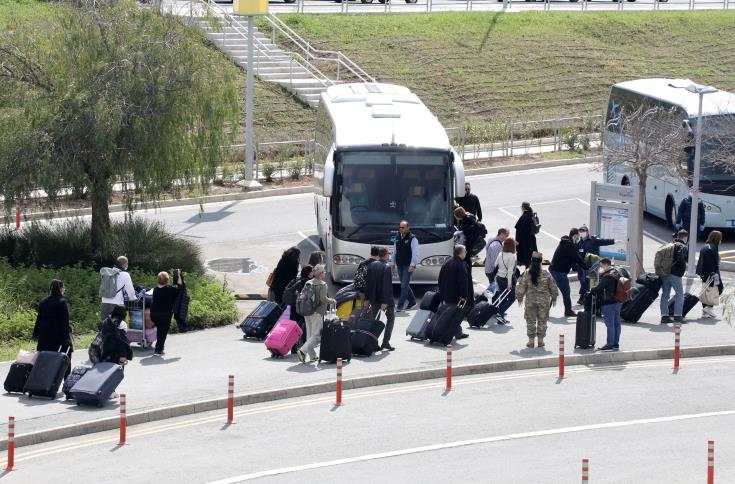Although automatic quarantine of repatriated Cypriots ended on Monday the government has kept the option open after a spike in coronavirus cases the previous day.
After obligatory 14-day quarantine at a government-designated facility ended on Monday, the Health Ministry issued new instructions for repatriated Cyprus saying they could stay where they were or self-isolate.
The decision comes after seven of the eight new infections reported Sunday were located among those repatriated to Cyprus.
On Saturday, Cyprus recorded zero cases for the first time since the outbreak on March 9.
The Health Ministry issued new instructions for repatriates after Sunday’s tally of confirmed cases was mostly from people who returned home from the UK.
It was decided that those who arrived in Cyprus under the previous government decree and were asked to leave on Monday had the option to either complete their 14-day stay at the hotel or isolate at home.
The decision was taken after a number of people requested they stay in quarantine to protect their families.
Cyprus decided to lift the automatic quarantine, after successfully containing COVID-19 transmission while only two people from the 7,500 repatriated tested positive during their confinement.
Those who arrive from Monday and until 8 June, will undergo a COVID-19 test then transferred to hotels until the results are ready.
If the result is positive, they will either be transferred for quarantine at the Eden Resort Wellness, Rehabilitation Centre or allowed to self-isolate while monitored by their personal doctor.
For those testing negative, they will remain in self-isolation, according to the provisions of the decrees and health protocols.
Those who are close contacts of confirmed cases will remain in quarantine at hotels for two more days before undergoing a second COVID-19 test. If the second test is negative, they will return home to complete the 14-day self-isolation.
Self-discipline needed
Dr Petros Karayiannis, professor of microbiology/molecular virology at the University of Nicosia Medical School and member of the Health Ministry Scientific Advisory Committee urged repatriates to take the situation seriously and remain in self-isolation.
He said the situation remains stable as seven of the confirmed cases announced on Sunday were “imported” and not locally infected.
Karayiannis said it will take 15 days to see the results of the second stage out of lockdown.
When the airports re-open on 9 June, Karayiannis said that there will be at least three quarantine hotels if tourists become ill.
He believes hotels are ready to open and are prepared as there are enough outdoor areas and he did not believe there will be overcrowding.
Regarding the opening of churches, he said everything went smoothly with the priests completely aware of what to do and there was order inside the churches.
What concerns the scientists, he said, is the overcrowding at cafeterias and restaurants where self-protection measures and especially distances are not adhered to.
We are worried because if there is a case and transmission, it will be hard to know how that person got infected as tracing will become harder.
As far as beaches are concerned, he said due to the blustery conditions at the weekend, it was not possible to see if people were maintaining social distancing or if the beds were properly cleaned.
Karayiannis said sunbeds need to be properly disinfected.
“Even if they spray (disinfectant), we have to ensure that when the wind blows, it doesn`t take away the spray or dries it quickly and doesn’t have time to act. It is something that the municipalities need to handle well.”










